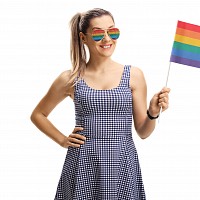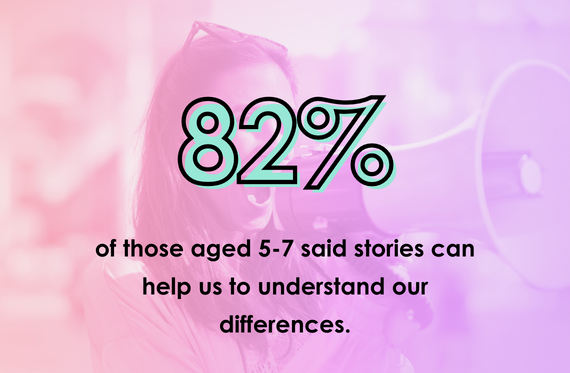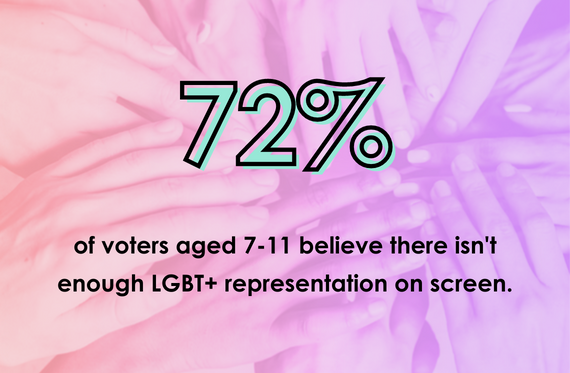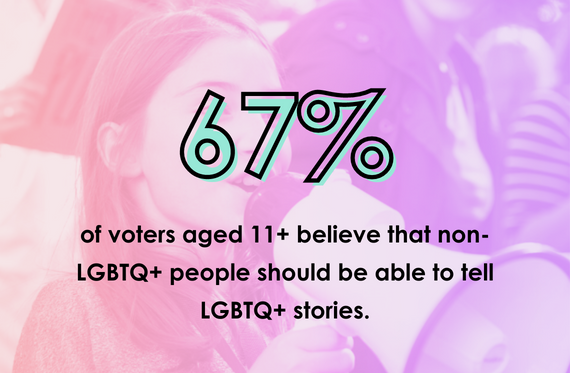Total votes
5-11 votes
11-16+ votes
For LGBT History Month and with WorldPride taking place in Sydney between the 17th February and 5th March, our voters discussed the representation of the LGBTQ+ community in the media. In particular, they explored how and how much their stories are portrayed and the actors and writers who choose to portray them.

"We couldn't think of very many TV programmes and films that had LGBT+ people in them so we don't think there's enough representation.”

"As long as the story is accurate, it should not matter. By getting those who are not LGBTQIA+ to act in the roles, it shows more equality and spreads awareness that it is ok to be LGBTQIA+.”

“The problem is not non-LGBTQ+ people taking those roles, it's taking those roles and doing them poorly (stereotypically/lazily)."



This week, Amy Ashenden, Chief Executive of the charity Just Like Us, commented on what the children said.
Just Like Us are a charity that works with LGBT+ children across the UK.